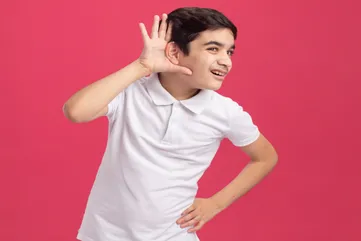Responsible Decision Making
Responsible decision making means pausing to consider consequences, ethics, and impact on others before choosing actions, even when peers or emotions push for immediate choices.
Why teens struggle with decisions
The teenage brain's reward system overpowers the still-developing judgment center, especially in social situations.
Decision-making challenges:
• Peer influence overrides logic
• Immediate rewards eclipse long-term consequences
• Emotions cloud judgment
• Risk seems abstract, reward feels real
• Social acceptance feels survival-critical
• Can't imagine future self's regret
Understanding these biological challenges helps parents support rather than simply criticize poor decisions.
You're not alone
If your teen makes baffling choices despite knowing better, their decision-making system is still under construction. Every parent watches smart teens make questionable decisions. This reflects normal brain development, not moral failure or poor parenting.
What it looks like day to day
Parent
You have conversations where your teen completely agrees with safe choices, then does the opposite when with friends.
Tiny steps to try
Build decision-making skills when calm.
- 1
Pause protocol
Teach specific pause techniques (count to ten, walk away, text parent) before big decisions.
- 2
Future self exercise
"How will you feel about this tomorrow? Next month?" Makes consequences real.
- 3
Values clarification
Help identify core values. Reference these when discussing decisions.
- 4
Scenario planning
Discuss hypothetical situations when not emotional. Pre-load good responses.
- 5
Decision autopsy
Review past decisions without judgment. What influenced the choice? What would you do differently?
Why responsible decision making matters
Decision-making skills developed during adolescence shape lifetime patterns of choices and consequences.
Teens who develop these skills experience fewer negative consequences, build trustworthy reputations, and develop confidence in their judgment. These skills prevent many adolescent risks and prepare teens for adult responsibilities where decisions have serious implications.
Ready to help your teen thrive?
Get personalized 1-on-1 coaching to build better habits and boost grades. Join 10,000+ families who trust Coachbit.
Frequently Asked Questions
How do I discuss bad decisions without lecturing?
Use curious questions rather than statements. "What was going through your mind?" "What influenced that choice?" "Looking back, what do you think?" This approach encourages reflection rather than defensiveness and helps teens develop internal evaluation skills.
Should I let them make bad decisions to learn?
Allow decisions with manageable consequences while preventing truly harmful ones. Minor social mistakes, academic choices, and financial decisions within limits provide learning. Intervene for safety, legal issues, or irreversible harm. Natural consequences teach better than lectures.
Related Terms
Critical Thinking
Critical thinking is the ability to analyze information objectively, evaluate different perspectives, and make reasoned judgments rather than accepting information at face value.
Executive Function
Executive function is your brain's management system that helps teens plan, focus, remember instructions, and juggle multiple tasks successfully.
Natural Consequences
Natural consequences are the automatic results of teens' choices without parent intervention, teaching responsibility through real-world cause and effect.
Prefrontal Cortex
The prefrontal cortex is your teen's brain CEO, managing planning, decision-making, and impulse control, but it won't be fully developed until around age 25.
Self-Awareness
Self-awareness is recognizing your own emotions, thoughts, values, strengths, and limitations, understanding how they influence behavior and impact others.
Related Articles

Science Explains Why Your Teen Won’t Listen to You: 4 Ways to Respond
Science shows that at 13, teens no longer listen to their parents and prioritize outside voices. A life coach or mentor is a great external source of support.
Read article
3 Ways an Executive Functioning Coach Can Help Your Child
Discover why executive functioning skills are crucial for your child's success. Learn how an executive functioning coach can make a difference
Read article
